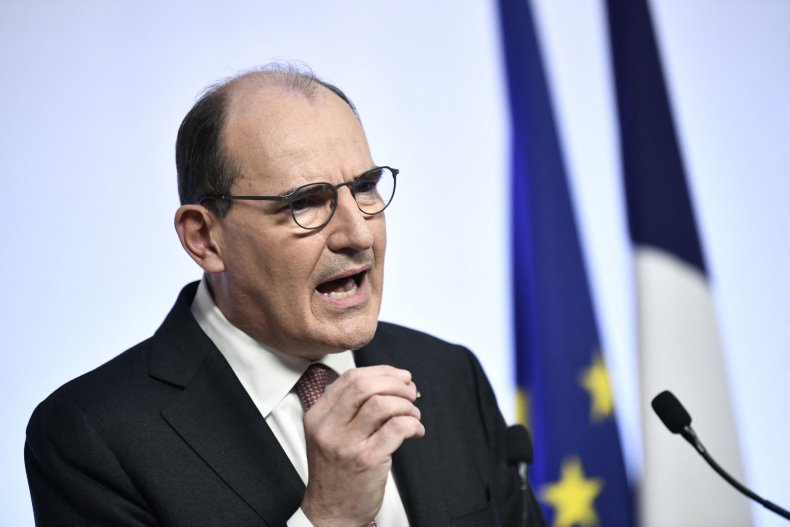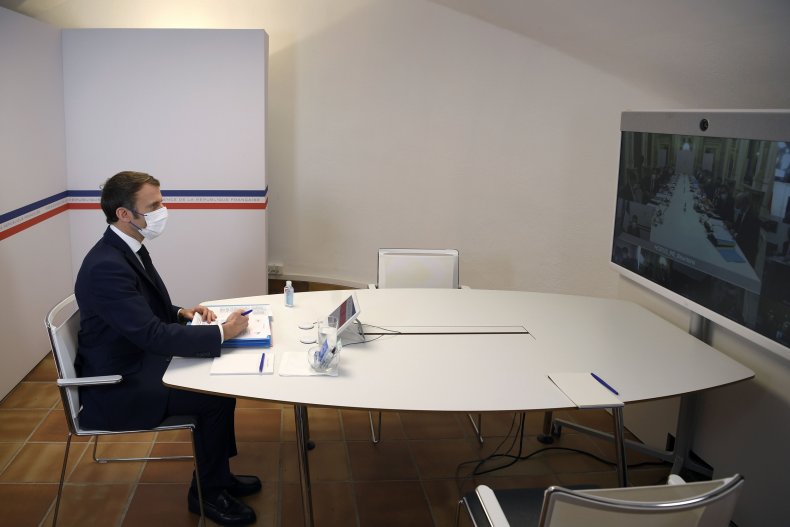France announced the rollout of a series of new COVID-19 measures on Monday, putting limits on everything from bars to stadiums as cases surge in the country.
French Prime Minister Jean Castex said the rules will be in effect for at least the next three weeks. One of the new measures prohibits people from eating and drinking in sports stadiums and theaters and on public transportation. People will also have to sit, not stand, at bars and concert venues.
Additionally, anyone whose job allows them to work from home will be required to do so for at least three days a week.
Large gatherings will also be limited under the new rules, with a cap of 2,000 for indoor events and 5,000 for outdoor events. Ahead of New Year's gatherings, Castex recommended "common-sense actions" like wearing masks and getting tested for the virus.
The prime minister added that schools will go ahead with reopening on January 3, and planned and political rallies will not be affected ahead of April's presidential election.
The decision comes soon after France recorded 100,000 new cases in one day, a record-breaking total for the country. With the Omicron variant set to soon become France's dominant virus strain, Castex said the country is in a "race against the clock."

President Emmanuel Macron held a special virus videoconference with key government members from his holiday residence at Fort de Brégançon on the French Riviera.
The new measures remain less strict than those put into place last December, when a nightly curfew was imposed across the country.
The French government appeared to be trying to strike a balance between measures needed to relieve hospitals and keep the economy running at the same time, as the fast-spreading Omicron variant complicates the situation.
More than one in 100 people in the Paris region have tested positive in the past week, according to the regional health service. Most new infections are linked to the Omicron variant, which government experts predict will be dominant in France in the coming days.
Macron is also wary of the impact on public opinion of potential harsh measures less than four months before the presidential election, in which he is expected to run.
Castex stressed that hospitals' intensive care units aren't saturated because more than 90% of France's adults are fully vaccinated—in sharp contrast with the situation last year.
The government hopes to speed up the nation's booster campaign by reducing the delay in getting the shot from four to three months after the previous vaccine shot.
The government on Monday also presented a bill aiming at creating a "vaccine pass," which will allow only vaccinated people to enter public places, including restaurants, bars and cinemas. The measure will be debated in Parliament next month.
The Associated Press contributed to this report.


Post a Comment